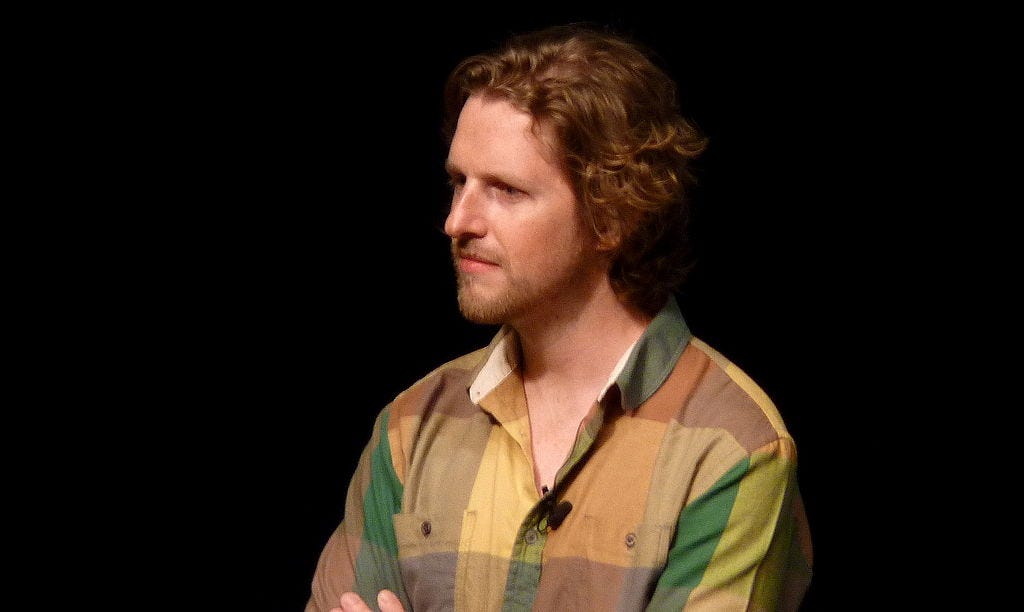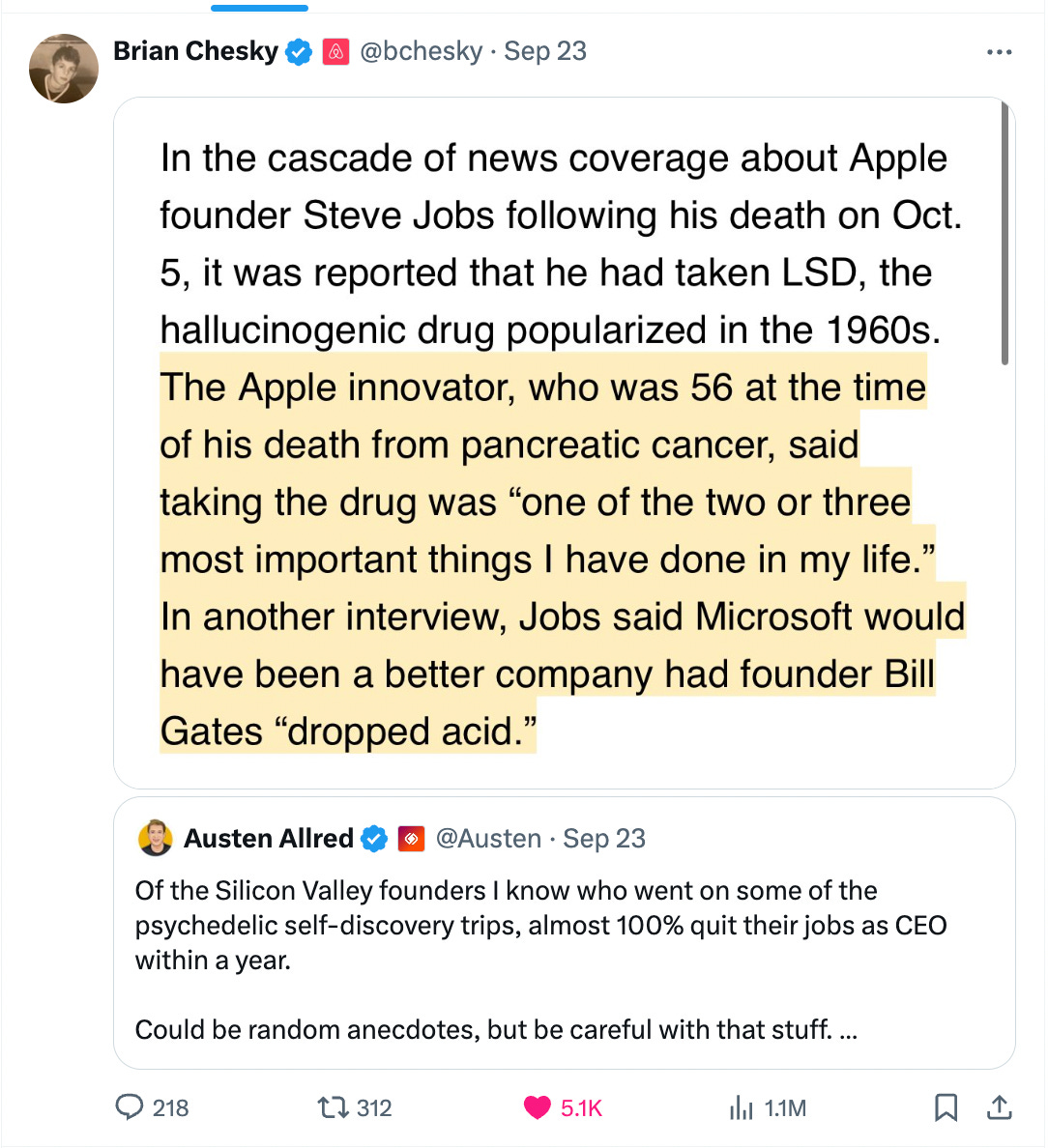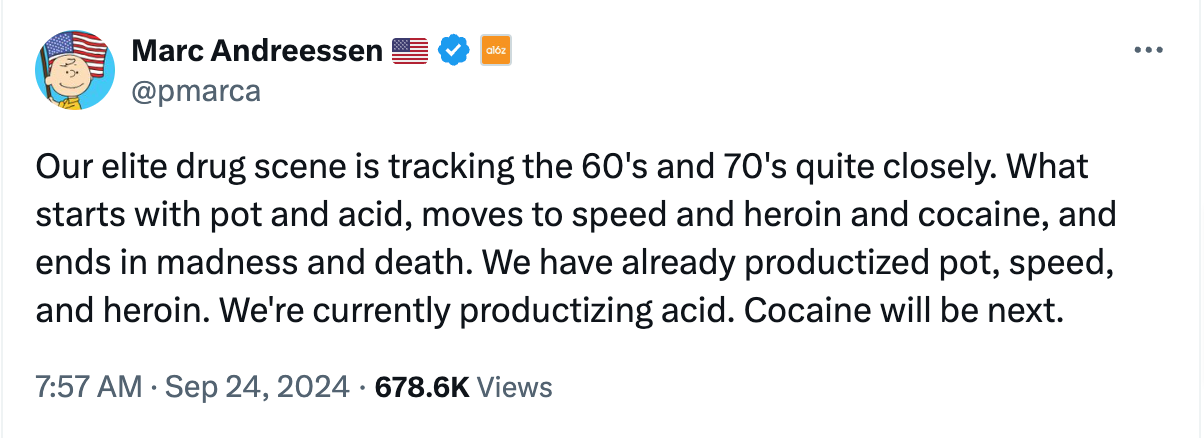Open-Source Battle Holds Lessons…Do Psychedelics Kill the Startup Spirit?...Bolt Investors Face ‘Prisoner’s Dilemma’
Plus, key executives quit OpenAI as it pursues mega funding round

The Main Item
WordPress Clash Poses an AI Open-Source Question
A schism in the open-source world this week is a worrying scenario for founders building companies on the back of open-source AI models.
It’s also a reminder that open-source can mean many things, and the specifics matter for investors.
WordPress lead developer and Automattic CEO Matt Mullenweg is locked in a nasty battle with the team at WP Engine, one of a number of companies that offer hosted versions of open-source WordPress with extra services and features built on top. He accuses WP Engine, owned by Silicon Valley private equity powerhouse Silver Lake, of improperly charging extra for WordPress.org services and failing to contribute its share to the open-source project, as well as profiting off confusion between WordPress and WP Engine’s names.
WP Engine first sent Mullenweg and Automattic a cease-and-desist letter after he updated the official Wordpress.org blog with his accusations against the company. On Thursday he banned WP Engine from accessing WordPress.org tools like themes or plug-ins, and they’re continuing to trade legal demands.
Mullenweg is getting heat from some developers for his dual role as CEO of Automattic, a for-profit company which also sells WordPress hosting and competes with WP Engine, and also the key mover at the non-profit WordPress.org, which owns and oversees the trademarks for the names and logos of WordPress.
I caught up with Mullenweg about the dispute, and he argued the case was very simple: “WP Engine could easily run all these services themselves. They could mirror all the code and run their own update servers or plug-in directory. They choose not to, they choose to essentially subsidize their offering by using millions of dollars of server resources on WordPress.org to provide service to their customers.”
A spokesperson for WP Engine referred us to their public statements on X.
Thousands of enterprises rely on Oracle Cloud Infrastructure (OCI) to power the applications that drive their businesses across industries like healthcare, scientific research, financial services, telecommunications, and more.
Oracle offers integrated suites of applications plus secure, autonomous infrastructure in the Oracle Cloud.
Talk with Oracle today about accelerating your GPU workloads.
The good guy and bad guy of the story probably depends on where you sit in the open-source ecosystem.
Mullenweg is the co-founder and lead developer of WordPress, which launched in 2003, as well as its longtime evangelist, and he has a lot of credibility as a champion of an open internet not walled off by platforms and profit-first incentives. He’s not against making a business of it though, having founded Automattic and even investing $25,000 in WP Engine years ago.
On the flip side, developers who have been using WP Engine to streamline their WordPress work are venting on Reddit about the major problems arising from what looks to them like a petty trademark dispute. Some are accusing Mullenweg of being out of control. (People have been friendlier over on Hacker News, Mullenweg pointed out to me.)
This saga is a warning sign for founders that open-source can have a lot of meanings, and business models can be dependent on those definitions.
In generative AI, different parts of the AI model, such as the source code, the model weights, or the training data itself can be open or closed to varying degrees. AI foundation model developers like Meta don’t typically open up all of their training data as part of the open-source license, investors told me. Instead, they give developers the opportunity to modify the weights of the model to fine tune it for their purpose.
As with older open-source companies, most of the AI applications startups built on open-source are offering subscription services with proprietary features alongside professional services. VC darling LangChain, for example, describes itself as an “open-source framework and developer toolkit,” offering services like developer workflows for building apps and agents and charging developers for features they believe are worth a premium, via either subscription fees or usage charges.
Ideally, open-source projects, including in AI, should have strong, multi-person governance, said NYU Stern School of Business Professor Natalia Levina.
”The general wisdom with open-source is that you want to join projects where there is good governance—if you have good governance, it shouldn't be one party’s decision to yank the support or to change the license,” she said.
That of course often isn’t the reality.
Building with open-source software has clear benefits—you can get quick adoption and goodwill within the developer community, and start building revenue streams with relatively modest investment.
And open-source models are performing nearly as well as OpenAI or Gemini’s proprietary models. The latest LMSYS Chatbot Arena Leaderboard stats show OpenAI’s latest releases are still beating the competition, but going down the rankings there’s not much differentiation between GPT-4’s or Gemini’s cheaper model Flash’s scores and those of the leading open-source models.
VCs don’t need to look further than Red Hat for proof that you can build a big-league company off an open-source core: the vendor of Linux-based enterprise software was acquired by IBM for $34 billion in cash in 2019, one of the largest tech buy-outs in history—though building to that did take 25 years.
One Big Chart
Silicon Valley Chatter
A War on Drugs in Silicon Valley? Spat Over Psychedelics Exposes Rift
A tweet from Bloomberg’s Ashlee Vance about an unnamed VC complaining they had lost many founders to ayahuasca, a hallucinogenic South American plant that’s been in vogue in tech circles, sparked a colorful back and forth. Austen Allred suggested psychedelics kill the entrepreneurial spirit.
On the other hand, Airbnb’s Brian Chesky shared the well-known story of Steve Jobs’ endorsement of LSD, which has helped cement the conventional Valley wisdom that drugs are neutral at worst, and can have lots of benefits. Experimentation and enjoyment of substances are arguably a core part of the culture.
Marc Andreessen, however, isn’t having it, and leaned into the gateway-drug argument with a reefer-madness sort of take.
In our humble opinion, all drugs are not created equal. Lumping in pot and LSD with highly addictive drugs like heroin and cocaine seems misguided. Once-in-a-blue moon mind-bending drugs feel much more spiritually aligned with the Silicon Valley free thinking ethos than Wall Street-banker style drugs that turn you into a grinding egomaniac with too much faith in your own talents.
But there’s always the risk that you return from a psychedelic trip and decide your grocery delivery startup has a bad aura.







